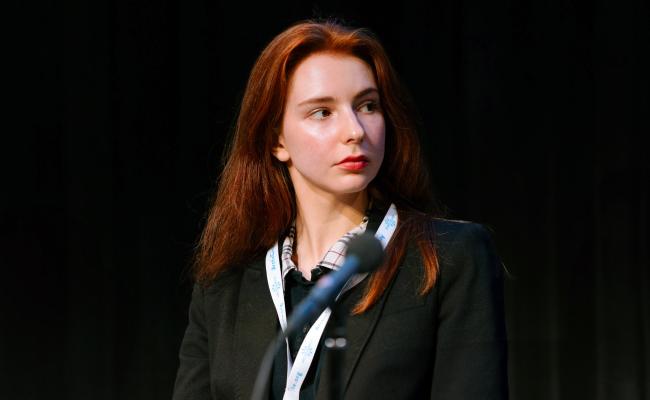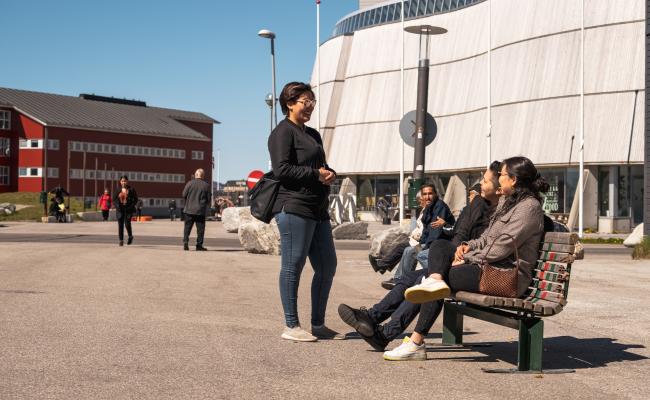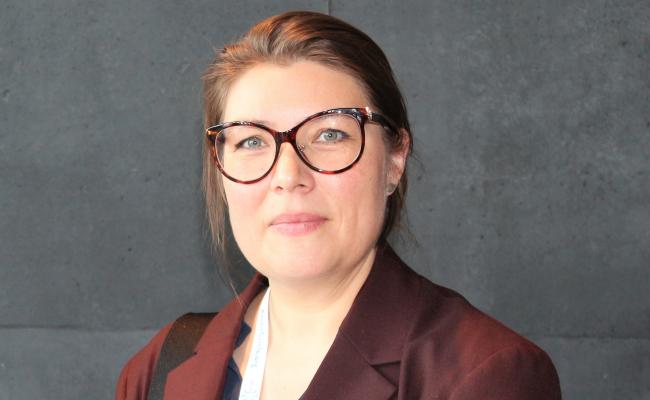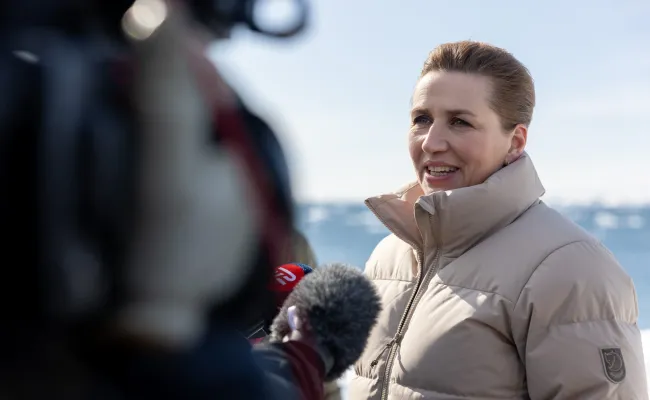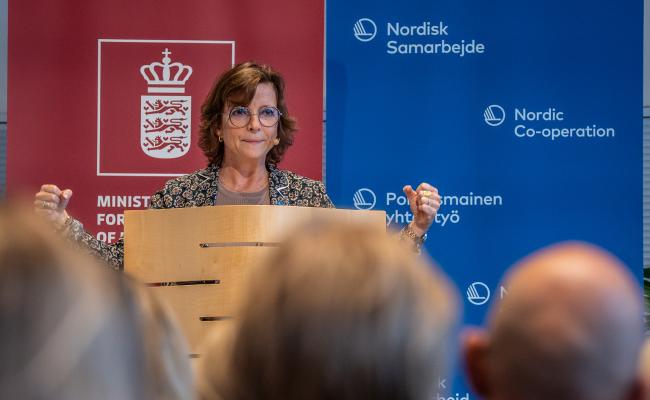Arctic Council Chairship Handover: “We Must Move Forward With Courage,” Says Greenlandic Foreign Minister
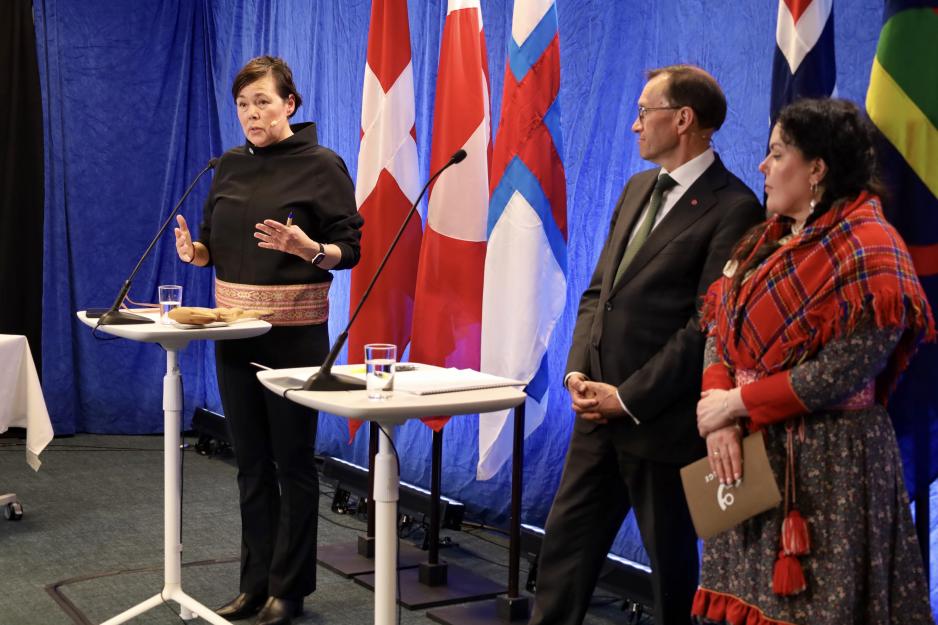
For the next two years, the Arctic Council will be chaired by the Kingdom of Denmark – Greenland, the Faroe Islands and Denmark. The Norwegian Minister of Foreign Affairs Espen Barth Eide rounded off Norway’s chairship and welcomed the new leadership represented by Vivian Motzfeldt, Greenlandic Minister of Foreign Affairs (on the left). (Photo: Astri Edvardsen)
Tromsø, Northern Norway (High North News): The Kingdom of Denmark, spearheaded by Greenland, has taken over the chairship of the Arctic Council. The eight Arctic states have also agreed on a joint statement. "The Council must continue to be the foremost forum for cooperation in the Arctic," underlines Greenland's foreign minister.
"In a world facing complex and difficult circumstances, we in the Arctic Council must show that we can live up to a greater responsibility through cooperation and dialogue. We must move forward with courage, openness, and deep commitment to peace and partnership."
The statement comes from Vivian Motzfeldt, Greenland's Naalakkersuisoq (minister) of Foreign Affairs and Research, standing at the podium in Tromsø, Northern Norway.
On Monday afternoon, Motzfeldt took over the chairship of the Arctic Council on behalf of the Kingdom of Denmark. The baton was handed over by Norway's Minister of Foreign Affairs Espen Barth Eide.
Before the handover ceremony, the Arctic Council's 14th meeting was held virtually, in which the council's eight member states (represented at the ambassador level) and its six permanent participant organizations agreed on a joint statement.
"In a challenging time for Arctic cooperation, I am pleased that the Arctic Council remains united. In today's geopolitical situation, it is important to maintain a forum for all the Arctic states and the Indigenous peoples in the region," states Barth Eide.
The context, to which both ministers allude, includes Russia's continued warfare against Ukraine and US President Donald Trump's repeated statements on annexing Greenland and Canada, as well as his policy of significant cuts in climate research.
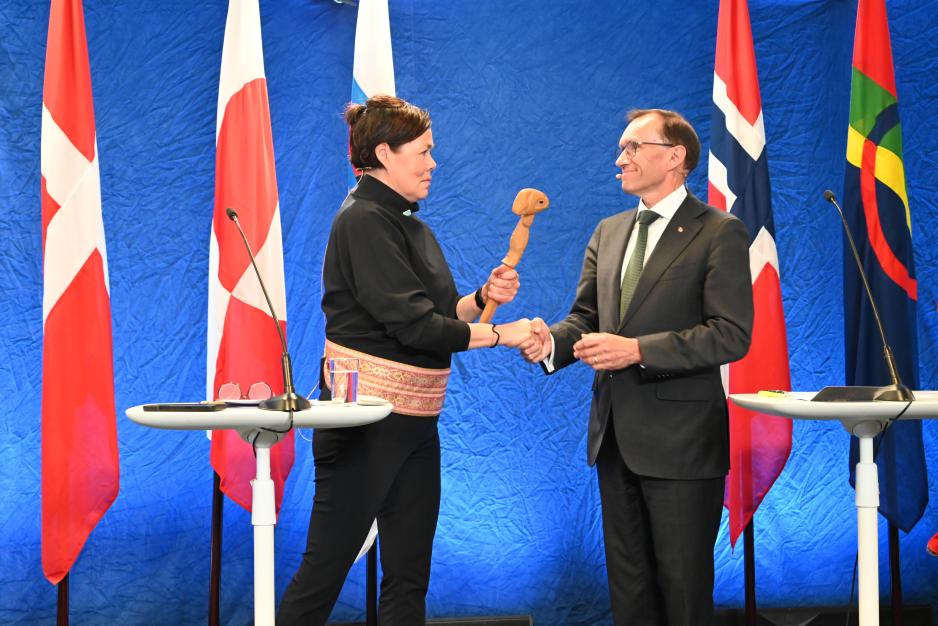
"It is particularly fitting that it is Greenland that will hold the chairship gavel on behalf of the Kingdom of Denmark, as it is the actual Arctic part of the kingdom," says Norway's Minister of Foreign Affairs Espen Barth Eide at the ceremony. (Photo: the Arctic Council)
The Arctic Council
· The Arctic Council is an intergovernmental forum for cooperation between the region's eight states, indigenous peoples, and other inhabitants on joint Arctic matters, particularly regarding sustainable development and environmental protection.
· The member states are Canada, Denmark, Finland, Iceland, Norway, Russia, Sweden, and the US.
· Six Indigenous organizations are permanent participants of the Arctic Council. They have full consultation rights in connection with the council’s negotiations and decisions, as well as the opportunity to participate in all its meetings and activities.
· 13 non-Arctic states and several international and non-governmental organizations have observer status.
Agreed words
In the joint statement, the Arctic Council's member states and Indigenous permanent participants confirm their commitment to maintain peace, stability, and cooperation in the Arctic.
The parties acknowledge the council as the pre-eminent forum for circumpolar cooperation for nearly three decades, highlighting "the critical significance of circumpolar dialogue between all Arctic states and permanent participants."
Furthermore, they commit to strengthening the Arctic Council's capacity to capatalise on new opportunities and address emerging challenges.
In addition, they confirm a collective ambition and a joint responsibility to ensure that the Arctic Council is fully enabled to execute its mandate in a rapidly changing Arctic.
This links to recognition of the very fast warming of the Arctic with a wide array of associated ecological and environmental changes. Climate is explicitly mentioned once, but there is no reference to anthropogenic climate change.
The statement also recognises the rights of Arctic indigenous peoples, their vital role in the Arctic Council, and their special relationship to the Arctic.
Also read (the article continues below)
This is knowledge that is important for the entire world.
Pleased with joint message
Was there anything that had to be removed from the joint statement to gain support from Russia and the US?
"There are always negotiations on the text when one writes a statement. However, for us as the chair, it was important that we were able to acknowledge the importance of some central topics, such as climate and environment, as well as Indigenous peoples. This is included in the statement and that is why I am happy with it," says Barth Eide to High North News.
"Given where we stand now, this is a good statement, all in all. I am pleased that all eight Arctic states contributed to it," the minister adds.
In his speech, Barth Eide focused on precisely climate change and Indigenous peoples, which form central common threads between the chairship programs of Norway and the Kingdom of Denmark.
"As we know, climate change occurs faster in the Arctic than any other place on the planet. Three times faster, perhaps four times faster in some areas, than the global average. This matters a lot for Indigenous peoples and everyone who lives here."
"It is very important that we gather, use, and disseminate scientific research data, but also build on traditional Indigenous knowledge as we see these changes occur. What happens in the Arctic does not stay in the Arctic. In other words, this is knowledge that is important for the entire world," he states.
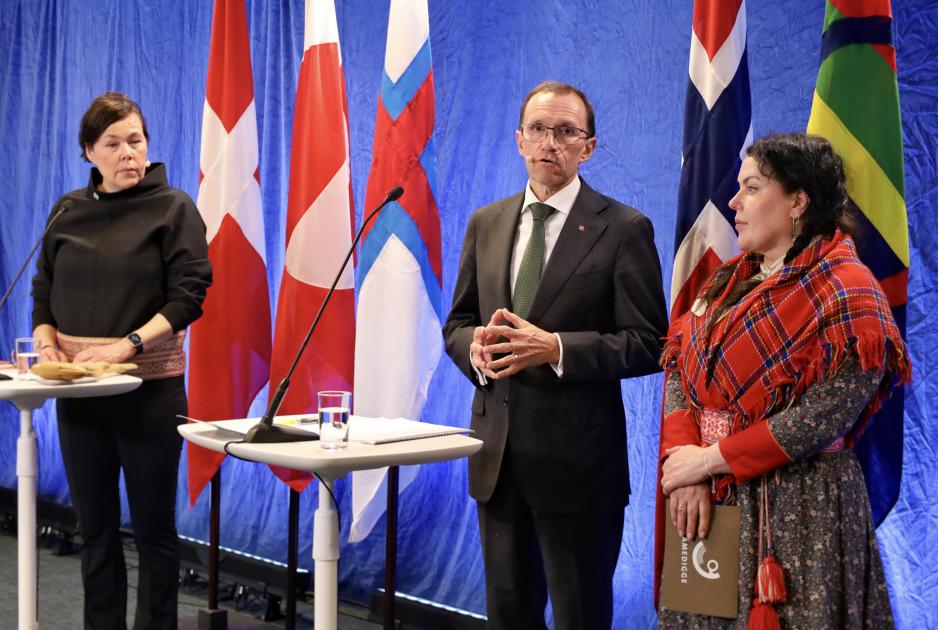
The joint statement holds up well against today's challenging backdrop, says Norway's Minister of Foreign Affairs Espen Barth Eide (Labor). (Photo: Astri Edvardsen)
About keeping together
What input came from the Russian and American sides at the council's meeting?
"It was a good meeting, and I believe that what the various participants wanted to communicate is what is in the statement. It is basically our joint message," answers the Norwegian foreign minister, and continues:
"I will also say that this is eight different states. The good thing is that we are together and that the forum is there. This meeting was very much about keeping the Arctic Council together, agreeing on priorities, and expressing support for what is mentioned in the joint statement."
Also read (the article continues below)
The Arctic must remain a region where tensions are solved using diplomacy.
The importance of cooperation
"The Arctic Council must continue to be the foremost forum for cooperation in the Arctic. This is a region of both great promise and great fragility. Our duty is to ensure that development in the Arctic is both inclusive and sustainable, with respect for the environment and the people dependent on it," says the Greenlandic minister of foreign affairs.
Motzfeldt states that dialogue, cooperation, and respect are the foundation for both sustainable development and long-term peace, security, and stability.
"The Arctic must remain a region where tensions are solved using diplomacy, where Indigenous rights are protected, and where cooperation prevails over confrontation."
"To achieve this, we will cooperate with all the council's member states, and we trust that they will also do their part."
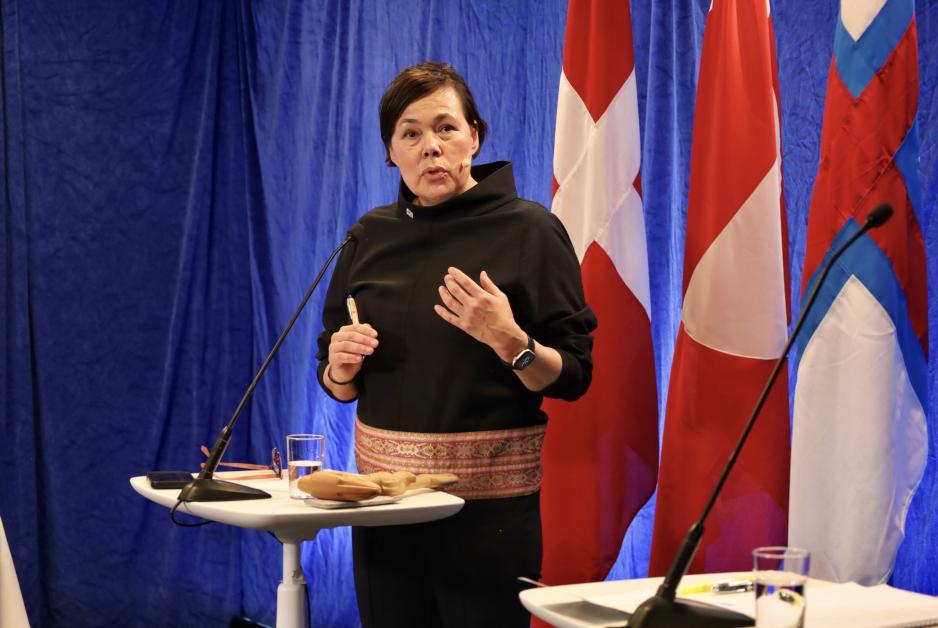
Greenland's Minister of Foreign Affairs Vivian Motzfeldt (S) praises Norway for its solid chairship of the Arctic Council and takes inspiration from it into the Kingdom of Denmark's chairship period. (Photo: Astri Edvardsen)
As chair, how will the Kingdom of Denmark make cooperation between the states function in these turbulent times?
"We wish to exercise strong leadership as Norway has done. We will build on Norwegian efforts and try to encourage more cooperation. One does not know what will happen in the future, but the world needs good stories, and everyone has a responsibility to promote peace and cooperation. Let us hope that more cooperation will be possible," Motzfeldt replies.
Stronger focus on Indigenous peoples
From the podium in Tromsø, Motzfeldt also emphasizes the importance of cooperation with the council's permanent participants, the six Arctic Indigenous organizations.
She calls attention to their efforts to ensure that Indigenous voices are heard and their rights respected, and underlines the Kingdom's focus on highlighting Indigenous knowledge in the council's work.
"We acknowledge that Indigenous knowledge and perspectives are crucial to understanding and addressing Arctic changes. We will therefore prioritize genuine integration of Indigenous knowledge on an equal footing with Western science in all aspects of the Arctic Council's work," says the minister.
Also read (the article continues below)
At times of unrest, we must now let Indigenous voices be sidelined by geopolitics.
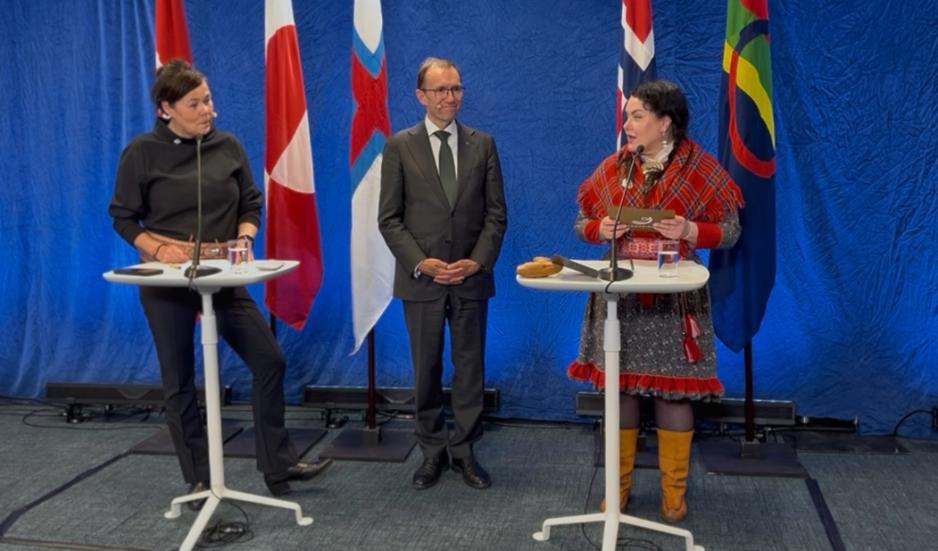
"Full involvement and active participation from Indigenous representatives are central to the Arctic cooperation," maintains Silje Karine Moutka (NSR), President of the Sámi Parliament, Norway. (Photo: Astri Edvardsen)
"When Indigenous people lead, the Arctic is stronger"
Silje Karine Moutka, President of the Sámi Parliament, Norway, added to this topic in her speech.
"The Arctic Council is unlike all other international forums because Indigenous peoples are seated at the same table as the Arctic states. The council is important to Indigenous peoples and Indigenous peoples are important to the council," she says, and continues:
"At times of unrest, we must now let Indigenous voices be sidelined by geopolitics. On the contrary, if states wish to make progress on Arctic policy they must uphold and strengthen their obligations to Indigenous peoples."
"We look forward to Greenland, the Faroe Islands, and Denmark's chairship of the Arctic Council, rooted in the knowledge of the land and the people who belong to it. When Indigenous people lead, the Arctic is stronger."



